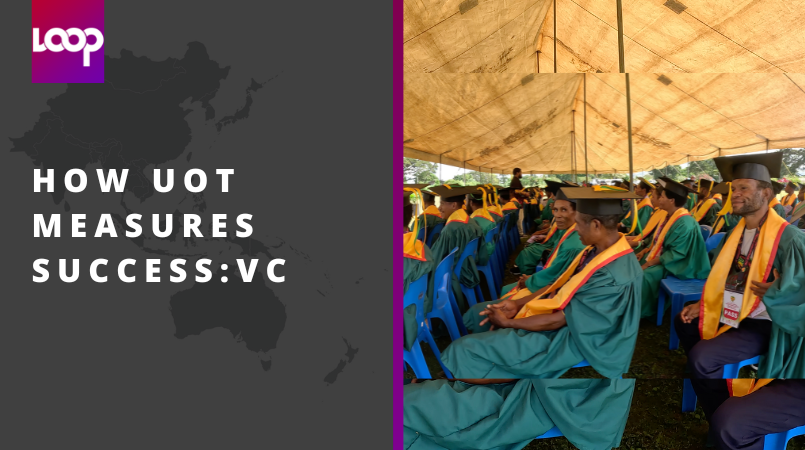
The PNG University of Technology should measure its success through the positive impacts it has had on the community.
“It must translate and be transferred to higher standards of living for my people in Papua New Guinea,” said vice-chancellor, Professor Ora Renagi, during the graduation of 142 rice farmers at Erap, in Morobe Province on Friday, April 19th.
“I strongly believe, as the vice chancellor of the university, if my science and technology is impacting the lives of my people in a positive way, then I can say that my university is doing its work.
“I can say that the vice chancellor is doing his work.”
Professor Renagi was emotional when he addressed the farmers, who had undertaken 20 weeks of training on irrigated rice farming; a program made possible through a five-year partnership with Trukai Industries.
“I invest resources and I encourage academics of the university; I encourage the students of the university. I invest in programs that academics can participate in, so that this technology and science must be transferred to impact the lives of our people. And today we are witnessing this transfer; this is why I am highly delighted. I am very excited to see the results of training that Unitech has provided.”
Prof Renagi drew attention to the three missions of Unitech; teach, conduct research to generate new knowledge to transfer to industries and communities, and community outreach.
“At the university, I have two institutions; Appropriate Technology and Community Development Institute. They are fully engaged in building energy programs and water supply programs in the communities and the villages. And then I have the South Pacific Institute for Sustainable Agriculture and Rural Development. That is under the department of agriculture at the university and this institute is used to train village men and women; train communities in farming activities.
“I see the good results that they are bringing back to me, like the result we are seeing here today.
“We are not only here to graduate engineers and agriculturalists to go and work in big industries in the cities. We are also here to graduate scientists, engineers, agriculturalists and yourselves, so they can go and participate in economic activities, whether macro or micro.”
